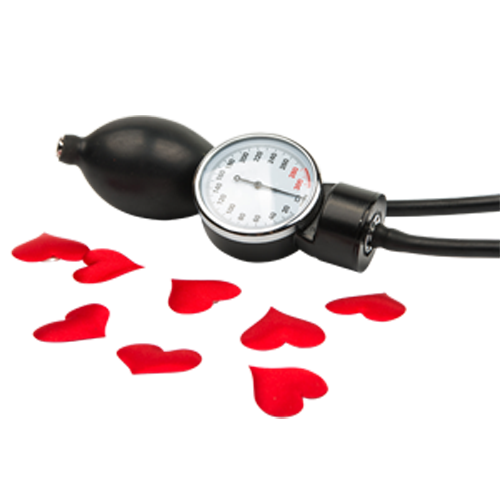Hypotension (low blood pressure) is a health issue that merits special attention, especially among seniors.
What is hypotension?
Hypotension is defined as an abnormal decrease in blood pressure. The term "low blood pressure" is often used to describe it. Blood pressure is considered to be low when the systolic blood pressure (the first of the two numbers indicating blood pressure) is lower than 90 mm Hg. A systolic pressure of less than 50 mm Hg is indicative of severe hypotension.
What causes low blood pressure?
There are different causes of low blood pressure. It can occur within two hours following a meal, when most of the blood flows to the organs involved in digestion. Orthostatic hypotension can also occur. This happens when the body moves too quickly from a lying or sitting position to an upright position.
There are several risk factors for low blood pressure, including being over the age of 65 and having certain heart diseases or diabetes. Other causes such as alcohol or cannabis use, dehydration and taking certain medications can also cause low blood pressure. If you suffer from this condition, it is necessary to speak to your doctor to identify the cause. Pharmacists can help you target the drug related causes.
Medication-related hypotension
Low blood pressure is among the most common undesirable effects of medication used to decrease blood pressure, also called “antihypertensives.” Low blood pressure can also be a side effect of other medications such as:
- antidepressants
- sleep medication
- antianxiety medication
- antipsychotic medication
- medication used to treat heart conditions
Hypotension can also be caused by a combination of several drugs. This is called "drug-interaction".
If your blood pressure is low, or if you think you suffer from hypotension, speak to your pharmacist, who can analyze your dispensing record to determine if certain medications that you take are likely to be the cause of the problem. If needed, your pharmacist can recommend safe alternatives or suggest dosage changes to your doctor.
What are the symptoms of low blood pressure?
Low blood pressure can be preferable or acceptable in certain individuals. It becomes a health issue when it comes along with symptoms, including the following:
- weakness
- nausea
- dizziness
- light-headedness
- fainting
- hot flashes
- headache
- confusion
- vision or hearing problems
Severe hypotension can lead to serious consequences; it requires immediate medical attention.
How can low blood pressure be prevented?
In order to avoid a drop in blood pressure, there are a few tips that can be put into practice daily:
- Stay well-hydrated, especially in hot weather or during periods of sustained physical activity. Avoid strenuous physical activity as much as possible if it is very hot.
- If you experience vomiting, you may become dehydrated. Speak to your pharmacist or contact Info-Santé if you present this symptom.
- Avoid over-consuming alcohol and cannabis.
- Avoid standing still for long periods.
- If recommended by your doctor, wear compression stockings.
- Do not cross your legs while sitting.
- Avoid staying too long in very warm places, such as saunas or spas.
- If you experience hypotensive episodes, especially after meals, limit your servings and avoid large meals.
- If you have orthostatic hypotension, stand up slowly.
- When you awaken in the morning, sit down for a moment on your bed. Then, put your feet on the floor and stay in this position for a few minutes to allow your body to adapt to changes in blood pressure. When it is time to stand up, make sure you have a solid support to hold on to, to avoid falling if your blood pressure drops.
- If you take antihypertensives, follow the dosage. Never modify your treatment without first having spoken to your pharmacist or doctor. If you have diarrhea and vomiting, or during periods of extreme heat, don’t hesitate to speak to your pharmacist, who can inform you about the ways to prevent hypotensive episodes.
In conclusion, many individuals see their blood pressure decrease once in a while without any cause for alarm. However, it is important to remember that in certain cases, the appropriate measures must be taken to rectify the situation. This may even be a medical emergency. If you are unaware of your blood pressure levels, stop by the pharmacy to obtain them. You will then have the luxury of monitoring your blood pressure’s highs and lows!

